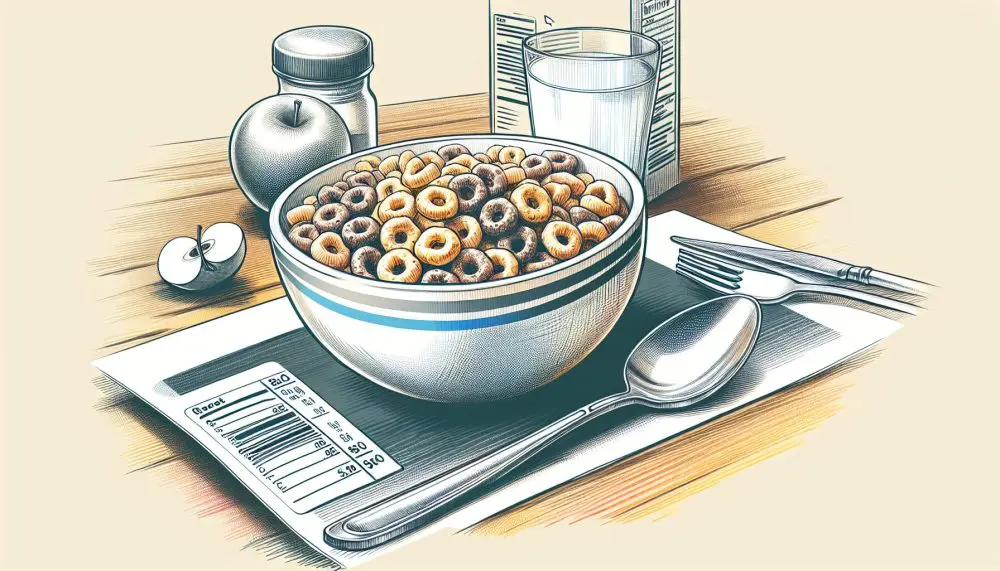
Table of Contents
As the cost of living continues to rise, many families are seeking budget-friendly meal options. Recently, Kellogg’s CEO suggested replacing traditional dinners with cereal as a way to cut costs. While this idea may appear practical, experts caution that the health implications of relying on sugary, ultra-processed cereals for dinner should not be overlooked. Below, we explore the nutritional concerns of such a choice and propose healthier, cost-effective alternatives for dinner.
Understanding the Drawbacks of Cereal for Dinner
Ultra-Processed Foods: A Nutritional Concern
Many popular cereals, such as Frosted Flakes and Fruit Loops, are classified as ultra-processed foods. These products are often high in sugar, sodium, and additives while being low in essential nutrients like fiber and protein. Regular consumption of ultra-processed foods has been linked to obesity, diabetes, heart disease, and even cancer.
A report by the British Medical Journal (2023) highlighted the addictive nature of ultra-processed foods, which contributes to excessive calorie consumption. This is particularly concerning for children, who are the primary target audience for sugary cereals.
Imbalanced Nutrition
Health experts emphasize the importance of balanced meals. Relying on sugary cereals for dinner deprives individuals of essential nutrients found in whole foods. A dinner consisting solely of cereal lacks adequate protein, fiber, and healthy fats, leading to nutritional deficiencies over time.
Healthier and Affordable Dinner Alternatives
Whole Foods Over Processed Choices
Replacing ultra-processed cereals with whole foods ensures a healthier, more balanced diet. Here are some nutritious and budget-friendly dinner ideas:
- Oatmeal with Toppings
- Opt for whole-grain oats topped with fruits, nuts, or seeds.
- Rich in fiber and vitamins, oatmeal is a versatile and affordable option.
- Egg-Based Meals
- Scrambled eggs with sautéed vegetables like spinach or broccoli.
- Serve with whole wheat toast for a quick, nutrient-dense meal.
- Hearty Soups
- Prepare lentil or vegetable soup in bulk.
- Soups are rich in protein, vitamins, and minerals while being cost-effective.
- Freezer-Ready Meals
- Batch-cook dishes like stir-fried quinoa with vegetables and chicken.
- Freeze portions for quick, healthy dinners on busy days.
Canada’s Food Guide: A Balanced Approach
Canada’s Food Guide recommends filling half of your plate with fruits and vegetables, a quarter with whole grains, and the remaining quarter with protein. Applying this principle ensures meals are nutritionally complete and balanced.
Cost-Saving Strategies for Healthy Dinners
- Buy in Bulk
- Purchase staples like rice, beans, and oats in bulk to save money.
- Seasonal Produce
- Choose fruits and vegetables that are in season for lower prices.
- Limit Food Waste
- Plan meals ahead of time and use leftovers creatively.
- Homemade Options
- Prepare homemade granola or energy bars as a healthier alternative to store-bought cereals.
The Importance of Consumer Awareness
Marketing strategies for sugary cereals often target children, perpetuating unhealthy eating habits. Families must prioritize educating themselves about the long-term health consequences of ultra-processed foods. Emphasizing whole foods and balanced nutrition can mitigate these risks and foster healthier lifestyles.
Conclusion
While cereal for dinner may seem like a convenient and affordable choice, the long-term health implications of ultra-processed, sugary cereals cannot be ignored. By opting for whole foods and following balanced meal guidelines, families can enjoy nutritious and cost-effective dinners that promote overall well-being.
